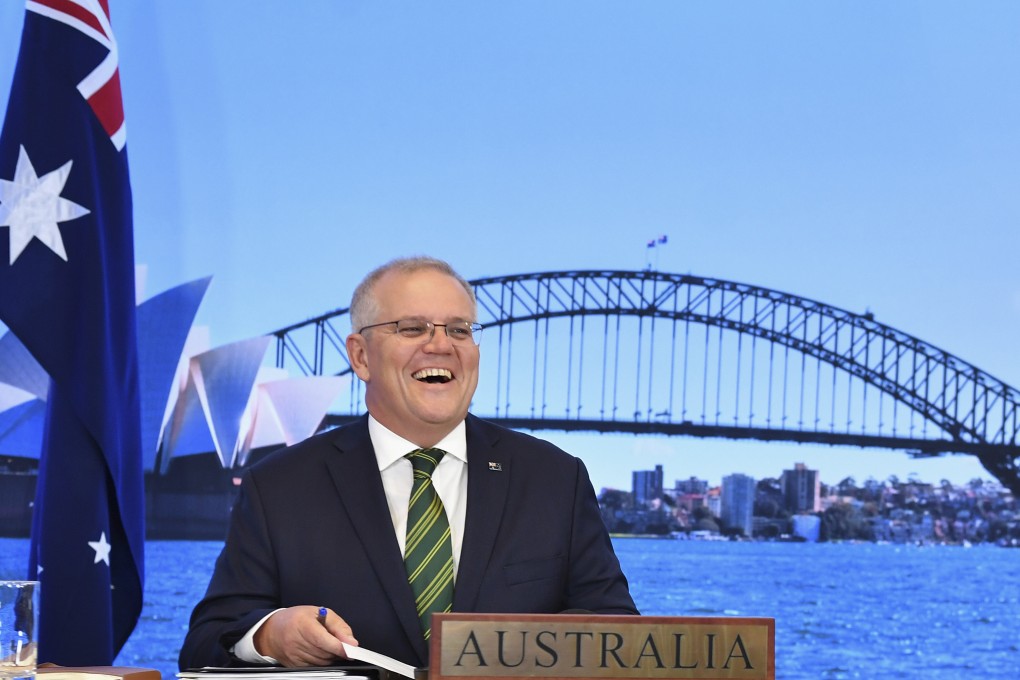Advertisement
Opinion | Australia has to step away from grandiose US Quad ideas and work with China, not against it
- Australia must stand up to China on issues that matter, such as the arbitrary detention of its citizens, but not by clinging to US coattails at Quad meetings
- Only by sitting at the same table as Beijing and discussing the security of the region together can Canberra ensure peace and stability
Reading Time:3 minutes
Why you can trust SCMP
99+

At the first ever Quad summit convened by US President Joe Biden, the grouping, which also includes India, Japan and Australia, said it was committed to promoting “a free, open rules-based order” in the Indo-Pacific. In reality, the main concern of the Quad – shorthand for the Quadrilateral Security Dialogue – is containing China.
In this, the UN Convention on the Law of the Sea (Unclos) has often been cited. The United States was outraged when China rejected the results of a 2016 arbitration on its actions in the South China Sea, yet Washington refuses to sign and ratify Unclos. China’s actions in the South China Sea are not defensible, but it should be noted that it has never threatened the freedom of commercial navigation in the Indo-Pacific.
China relies on free trade flows through the region. Meanwhile, the US navy routinely conducts freedom of navigation operations within the exclusive economic zones of many countries in the Indo-Pacific, including China and fellow Quad ally India.
Advertisement
So, let’s call a spade a spade. The US wants freedom of movement for its military ships and aircraft in the Indo-Pacific. It is terrified that it has let China grow too powerful and it is trying desperately to rewind the clock.
Caught up in this tussle, the Australian government needs to do what is possible to get its relationship with China back on track.
The constant reliance by Australian politicians on vague “shared values” to justify Australia’s alliance-driven foreign policy is a dumbing-down of its diplomacy. Shared values are not always synonymous with converging interests. Thousands of Australians died or were wounded while Australia played deputy sheriff to the US during the Vietnam war.
Advertisement
Select Voice
Select Speed
1.00x

